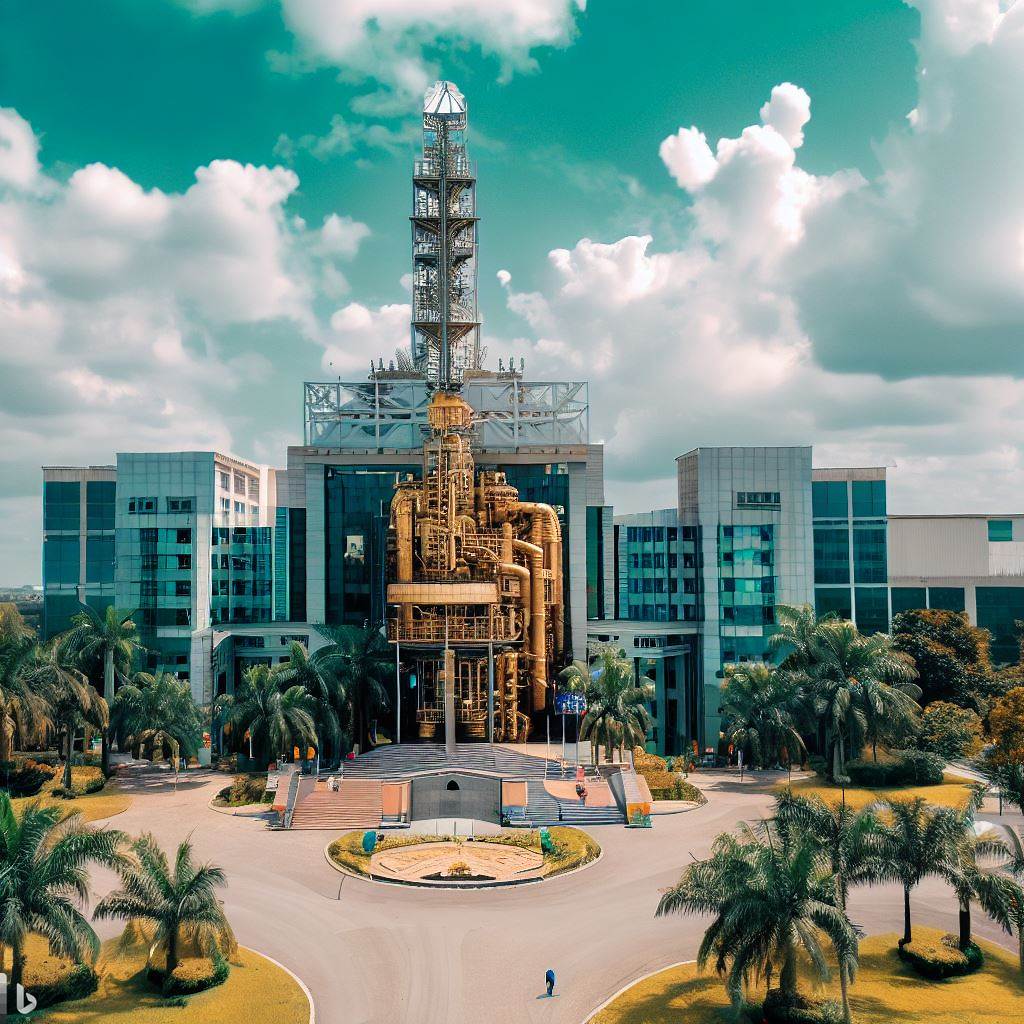Introduction
Petroleum Engineering plays a vital role in Nigeria’s economy as the country heavily relies on its oil resources.
Understanding salary scales in this field is crucial for professionals and aspiring engineers alike.
By gaining an insight into the financial aspects, individuals can make informed decisions about their careers and negotiate fair compensation.
Brief overview of Petroleum Engineering in Nigeria
Petroleum Engineering is a discipline that involves the exploration, extraction, and production of oil and gas.
In Nigeria, it is a highly sought-after profession due to the country’s abundant reserves.
Engineers in this field work on projects ranging from drilling wells to designing efficient production methods.
Importance of understanding salary scales in Petroleum Engineering
Knowing the salary scales in Petroleum Engineering allows professionals to assess their worth in the job market.
It also helps them negotiate better compensation packages, considering factors such as experience, qualifications, and industry demand.
Additionally, knowing the salary ranges can aid aspiring engineers in making career choices and setting realistic expectations for their future earnings.
With Nigeria’s flourishing oil industry, the salary scales in Petroleum Engineering tend to be competitive and lucrative.
Engineers with specialized skills and extensive experience can expect higher salaries.
However, it is essential to keep in mind that various factors such as company size, location, and economic conditions also influence salary packages.
Most importantly, understanding salary scales in Petroleum Engineering is crucial for both professionals and aspiring engineers in Nigeria.
It provides insight into the financial aspects of the industry and enables individuals to make informed decisions about their careers.
By staying aware of the salary ranges, professionals can negotiate fair compensation packages, ensuring they are appropriately rewarded for their skills and contributions.
Read: The Path to Becoming a Petroleum Engineer in Nigeria
Petroleum Engineering Salary Scales in Nigeria
Petroleum engineering offers a spectrum of earning potentials in Nigeria, influenced by experience and responsibilities.
Understanding these salary tiers and associated factors can pave the way for a lucrative career.
Entry-level Salaries
Commencing a petroleum engineering journey welcomes fresh graduates with promising financial prospects.
The average starting salary sets the tone, acting as a foundation for growth.
Factors intricately woven into this baseline figure include academic achievements, skill set, and the company’s fiscal health.
Mid-level Salaries
With 3-7 years of experience, petroleum engineers ascend to mid-level positions, reaping higher financial rewards.
This phase witnesses an elevation in average salaries, sculpted by proficiency, specialization, and the evolving energy landscape.
Adaptability and consistent upskilling can significantly tip the scales.
Senior-level Salaries
A decade of perseverance culminates in senior-level status, where salaries reach their zenith.
Seasoned engineers, with over 10 years of dedication, reap the rewards of their endurance.
Industry recognition, leadership roles, and an intricate web of networks amplify compensation, underscoring the significance of a steadfast career trajectory.
Additional Bonuses and Benefits
Beyond fixed salaries, petroleum engineers can bolster their income through performance-based bonuses, elevating their financial status through exceptional contributions.
Moreover, a spectrum of allowances and perks augment the overall compensation package.
For those embracing overseas assignments, an added dimension of remuneration comes into play, reflecting the challenges and opportunities of international placements.
All in all, navigating the realm of petroleum engineering salaries in Nigeria involves understanding the nuances of each stage – from humble beginnings to pinnacles of experience.
While monetary incentives evolve with time, the underlying constant is the indispensable role played by skill enhancement, adaptability, and steadfast commitment to the dynamic field of petroleum engineering.
Read: Challenges Faced by Petroleum Engineers in Nigeria

Factors Affecting Petroleum Engineering Salary Scales in Nigeria
In the context of petroleum engineering salary scales in Nigeria, several factors come into play that determine the remuneration received by professionals in this field.
This section will explore some crucial factors that affect salary scales and shed light on their significance.
Educational Background and Qualifications
To achieve success and growth in the petroleum engineering industry, a relevant educational background and qualifications are paramount.
Possessing a degree in petroleum engineering or a related field is of utmost importance when it comes to salary scales.
Employers highly value candidates with the necessary educational degrees when considering compensation packages.
The possession of additional certifications or training can also have a significant impact on salary negotiations.
These additional qualifications showcase an individual’s commitment to professional development and enhance their expertise, resulting in higher salary scales.
Work Experience
Work experience is another critical factor affecting petroleum engineering salary scales.
Professionals with a higher level of experience often command higher salaries due to their proven track record and accumulated knowledge.
Employers recognize the value of experienced individuals who can contribute immediately without requiring extensive training.
Moreover, specialized experience in particular areas of petroleum engineering, such as drilling techniques or reservoir modeling, can further drive salary negotiations and result in higher remuneration.
Industry Sector and Company Size
Salary variations can be observed within different sectors of the petroleum industry.
Upstream, downstream, and service companies may offer different salary scales based on their specific roles and responsibilities.
Additionally, the size and reputation of the company play a significant role in determining salary levels.
Larger and more reputable companies often have higher budgets and can offer better compensation packages to attract top talent.
Location and Job Market
The location in which a petroleum engineer works can have a significant impact on salary scales.
Major oil and gas hubs, such as Lagos and Port Harcourt, tend to offer higher salaries due to the abundance of opportunities and the presence of major players in the industry.
Furthermore, regional variations in salary scales can be observed within Nigeria.
For example, working in the Niger Delta region, where the majority of Nigeria’s oil reserves are located, may result in higher salary scales compared to other regions in the country.
Economic Factors
The petroleum industry is heavily influenced by economic factors, which, in turn, affect salary scales.
Oil price fluctuations have a direct impact on the financial stability and profitability of companies operating in the industry.
During periods of low oil prices, companies may experience financial constraints, leading to lower salary scales.
Conversely, during times of high oil prices, companies are often more profitable and can offer higher salaries.
Moreover, the overall economic conditions of the country also play a crucial role in determining the state of the petroleum industry, indirectly impacting salary scales.
In fact, various factors contribute to the determination of petroleum engineering salary scales in Nigeria.
These include educational background and qualifications, work experience, industry sector and company size, location and job market, as well as economic factors.
Understanding and considering these factors can provide valuable insights for professionals seeking to negotiate their salaries and employers aiming to attract and retain top talent in the petroleum engineering field.
Read: Prospects of the Petroleum Engineering Field in Nigeria
Strategies for Maximizing Petroleum Engineering Salary
Continuous Professional Development
To optimize earnings in the field of petroleum engineering, an unwavering commitment to continuous professional development is paramount.
Remaining abreast of the latest industry trends is not just advisable, but essential for sustained career advancement and augmented income.
The acquisition of new proficiencies and certifications serves as a dynamic catalyst.
It not only enriches one’s professional skill set but also amplifies market desirability.
By proactively pursuing new skills, individuals elevate their industry stature, positioning themselves for higher-paying roles.
Networking and Industry Connections
The trajectory toward an elevated petroleum engineering income is substantially smoothened through the cultivation of a robust professional network.
This interconnected web not only widens employment horizons but also unveils pathways to remuneratively superior prospects.
Constructing meaningful alliances with industry connoisseurs and adept mentors offers a twofold advantage.
Such associations not only bestow invaluable insights and guidance but also potentially serve as commendatory references, vital for securing more lucrative positions.
Negotiation Mastery
Mastery of negotiation dynamics is a potent instrument in the pursuit of an augmented petroleum engineering remuneration.
Skillful preparation for salary deliberations is underpinned by meticulous exploration of prevalent industry benchmarks and a profound understanding of personal value.
Effective negotiation hinges on the orchestration of strategic communication.
Adeptly showcasing one’s achievements and accentuating distinctive proficiencies can decisively influence the outcome.
Through this dexterous negotiation dance, individuals position themselves to reap the fiscal benefits commensurate with their true worth.
In short, navigating the realm of petroleum engineering salaries in Nigeria with a strategic intent involves a triad of potent strategies.
Continual professional evolution, adept networking, and negotiation finesse collectively shape a roadmap towards maximizing one’s earning potential in this dynamic field.
Read: A Day in the Life of a Nigerian Petroleum Engineer
Conclusion
Exploring Petroleum Engineering Salary Scales in Nigeria yields vital revelations.
To comprehensively assess salary offers, multifaceted factors must be weighed.
These findings hold particular significance for aspiring and existing petroleum engineers, guiding them towards prudent and informed choices.
In summary, delving into Petroleum Engineering Salary Scales in Nigeria uncovers crucial insights.
Evaluating salary propositions demands a nuanced approach, imperative for those in or aspiring to join this profession.
As a result, individuals within the petroleum engineering domain are strongly advised to leverage these findings, empowering themselves to navigate the intricate landscape of salary negotiations effectively.




